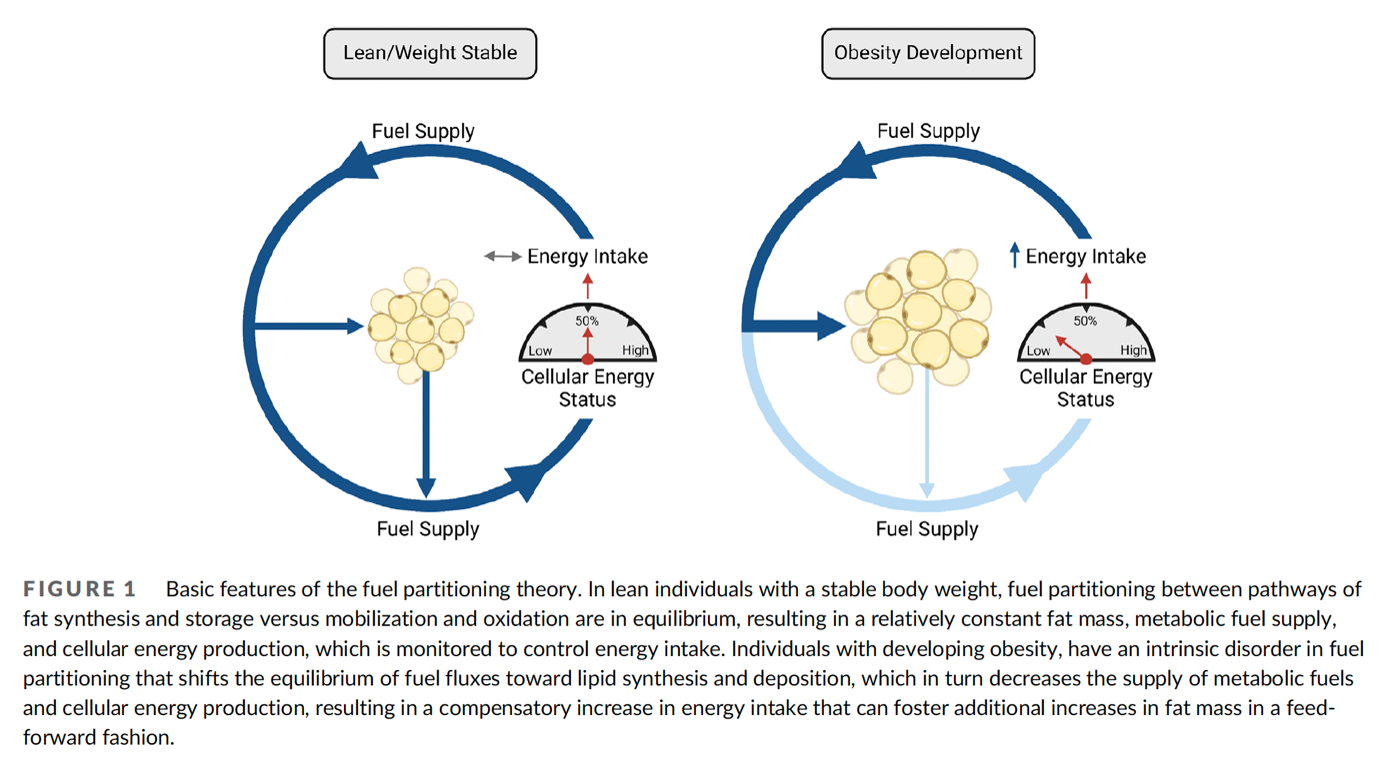
Clinicians and many obesity sufferers have known for a long time that it’s way more complex than just an imbalance between energy input and output. That’s why it’s so refreshing to see a paper suggesting that weight gain and obesity isn’t just about eating too much and exercising too little—the ‘calories in, calories out theory’.
The authors suggest there’s something else that’s a much bigger driver going on. They propose getting fat is more often than not an intrinsic disorder linked to how the body handles energy. This disorder affects how the body partitions fuel, leading to the accumulation of fat. Their views are supported by 80 years of animal obesity research, allowing them to update the fuel partitioning theory. They show that in obese animals, energy is redirected from being burned to being stored as fat, even when their energy intake is the same or less than that of lean animals.
The body is constantly making decisions on whether the fuels you eat are used immediately for energy, stored for future use, or converted into other forms. This process is influenced by various factors, including hormonal signals (like insulin and oestrogen, leptin and ghrelin), the availability of nutrients, and the body’s current energy needs.
In a healthy metabolism, the body efficiently balances the use and storage of these fuels. For example, after eating, insulin levels rise, promoting the storage of excess glucose as glycogen and fat. During fasting or exercise, stored glycogen and fat are mobilised to provide energy. When it all goes wrong, the authors suggest that there is a fundamental problem in the body’s decision-making process. This intrinsic disorder in fuel partitioning means the body is more likely to store fuels (particularly fats) rather than use them for energy. This leads to the accumulation of fat stores and difficulty in mobilising these stores when energy is needed.
The result is a serious energy imbalance where the body’s trapped fat stores are unable to be accessed, leading to a continuous cycle of fat accumulation. Dysfunctional partitioning is proposed as a fundamental cause of obesity, beyond simple lifestyle factors.
https://www.anhinternational.org/news/struggling-with-weightloss-is-your-fat-trapped/
